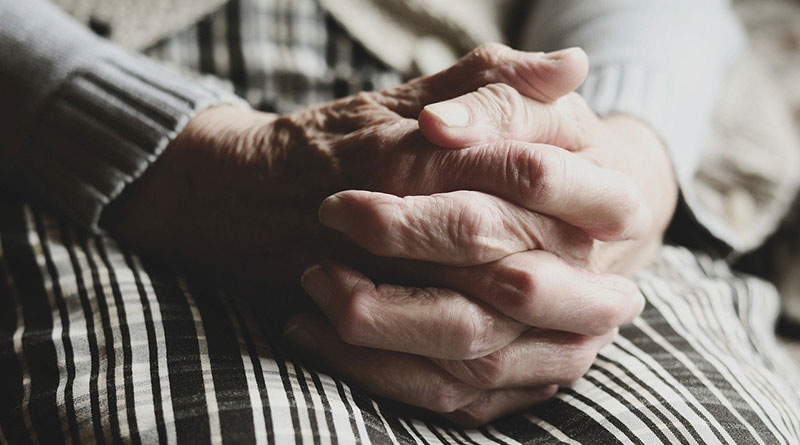Care Home Isolation Rules Revised down to 14 Days
Isolation rules for care homes have now changed for care homes in England so they only have to close to new residents and visitors for 14 days following a Covid outbreak, which is defined as two or more cases.
The move follows pressure to relax ‘outdated’ rules stating that care homes should not admit any new residents for 28 days after a single Covid case.
The change has been made to help ease the pressure in hospitals where there are thousands of patients who are fit to be discharged but are forced to remain due to a shortage of care home beds.
An estimated 10,000 patients a day who were medically fit to be discharged were stuck in hospitals according to reports, with many requiring a place in a care home or a support package from local social care systems to allow them to return home.
However, only four in ten patients medically fit to leave hospital are being discharged each day, NHS England data shows.
The latest urgent and emergency situation report for the NHS in England reveals that:
- More than 80,000 NHS staff were absent last week with nearly half – 44% in week ending 2 January – off due to COVID, a rise of 22% on the week before (35,596 COVID absences up from 25,273 during the Christmas week to 26 December).
- Almost 10,000 patients who no longer needed to stay in hospital were not discharged each day, with the seven-day average last week showing that nearly 6 in 10 people no longer meeting the criteria to be in hospital could not be discharged into the community.
- Nine in 10 patients who had been in hospital for more than three weeks but no longer needed to be there were not being discharged each day to places such as social care.
- The NHS answered almost 80,000 more 111 calls last week than the week before, up 25% on the previous week
Responding to the latest figures, Dr Layla McCay, director of policy at the NHS Confederation, said:
“Despite doing everything possible and working closely with sister services in social care, NHS organisations cannot simply ask patients, many of them frail and elderly, who are ready to leave hospital to vacate the premises if there is no where appropriate for them to go.
“These latest figures which show 6 in 10 patients are having to stay in hospital when they no longer need are very telling.
“Health leaders have raised concerns that staff absences across care home and domiciliary services are having a significant impact on the NHS, where patients in hospital beds that don’t need them are waiting to be discharged while poorly patients may have to wait.
“The NHS will continue to do everything it can to prioritise patients with the greatest clinical need but without a long term, properly funded strategy to increase the social care workforce, they are worried this situation will worsen.”
“The NHS is under such pressure right now that two years into this pandemic the Government has felt it necessary to deploy military personnel to help out once again. Staff sickness and self-isolation levels are sky high, whilst access to testing for NHS staff is still patchy, which is making the situation very difficult.”
“The Government must now urgently do more to relieve these extreme problems right now including acting on our six key proposed changes to support the NHS through January, which would have a wider impact on service delivery.”
A spokesman for the Department of Health and Social Care said: “Throughout the pandemic we have done everything we can to protect those receiving care with the measures in place based on the latest scientific and expert advice.
“A change has been made to outbreak restrictions reducing the period from 28 to 14 days in line with this advice.”
He added: “We keep these measures under constant review to ensure we continue to protect the lives, health and wellbeing of residents and fully recognise the impact of isolation and the importance of companionship on physical and mental wellbeing.”
Martin Green, chief executive of Care England welcomed the change in policy, saying: “As the largest and most diverse representative body for independent providers of adult social care, Care England is glad that the government has listened to us and amended the parameters for classifying a Covid outbreak within a care home.
“The Omicron virus is affecting over a third of care homes, but there are encouraging signs from the data that the impact of this new variant is not as severe as in the previous waves of the pandemic.
“Staffing remains the most critical issue for social care and Care England will continue to push for a very swift response to changing guidance when it is appropriate, and when the data leads us in that direction.”
Care homes and hospitals are experiencing crippling staff shortages this winter, amid record numbers of coronavirus cases in the UK.
Existing staff shortfalls in the social care sector have been worsened by the Government’s decision to make Covid jabs mandatory for care workers, while the highly infectious Omicron variant has caused unprecedented numbers of staff isolation.
Stephen Chandler, president of the Association of Directors of Adult Social Services (Adass), said care providers in England had reported staff absences of between 5 and 10 per cent.
Mr Chandler said he knew of two councils that had decided to cut the number of visits carers could give to patients living in their own homes.
He also said that two national supported living providers, which help people with mental health needs and learning disabilities to live independently, had told him they were not able to support people going out as much.






